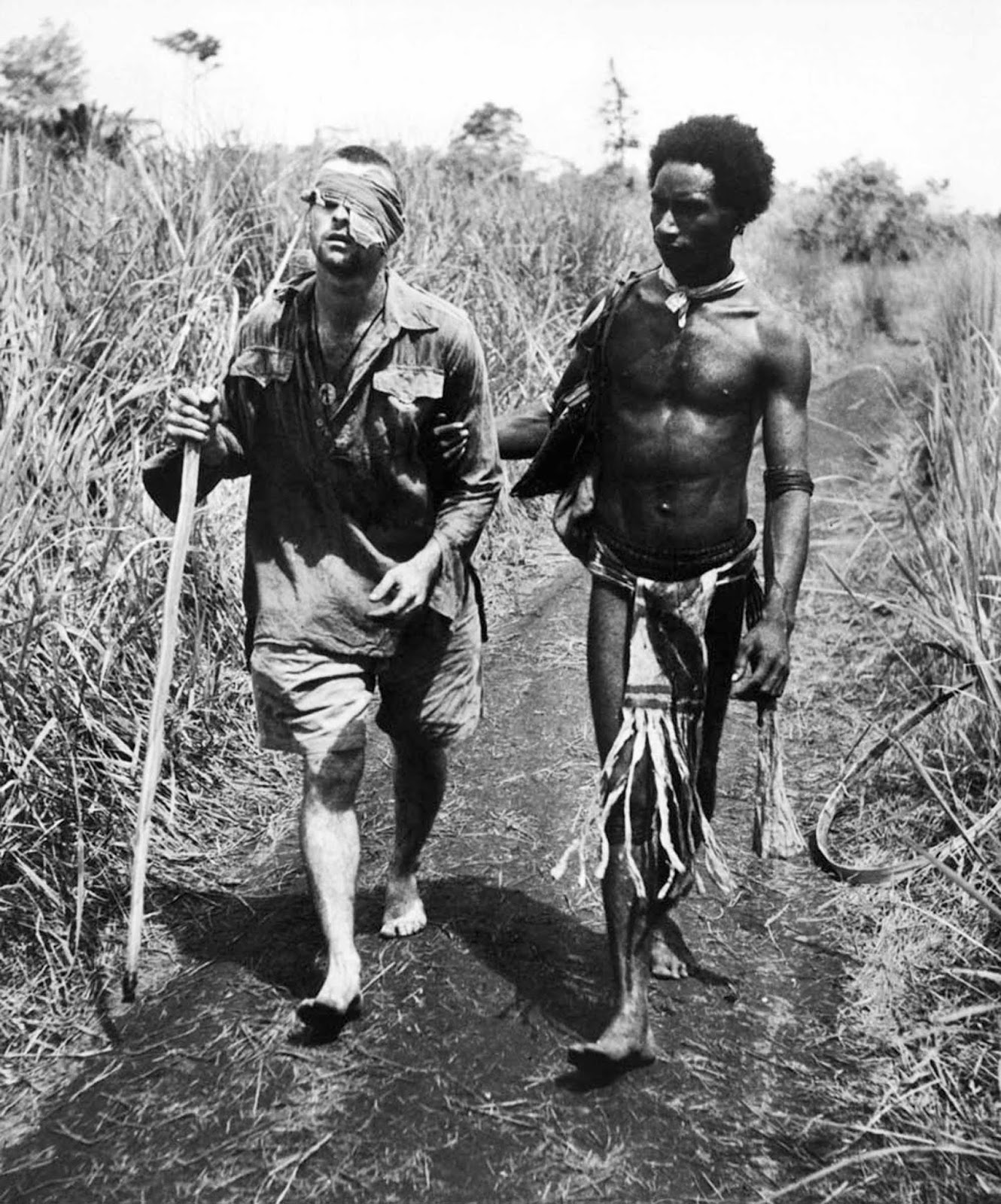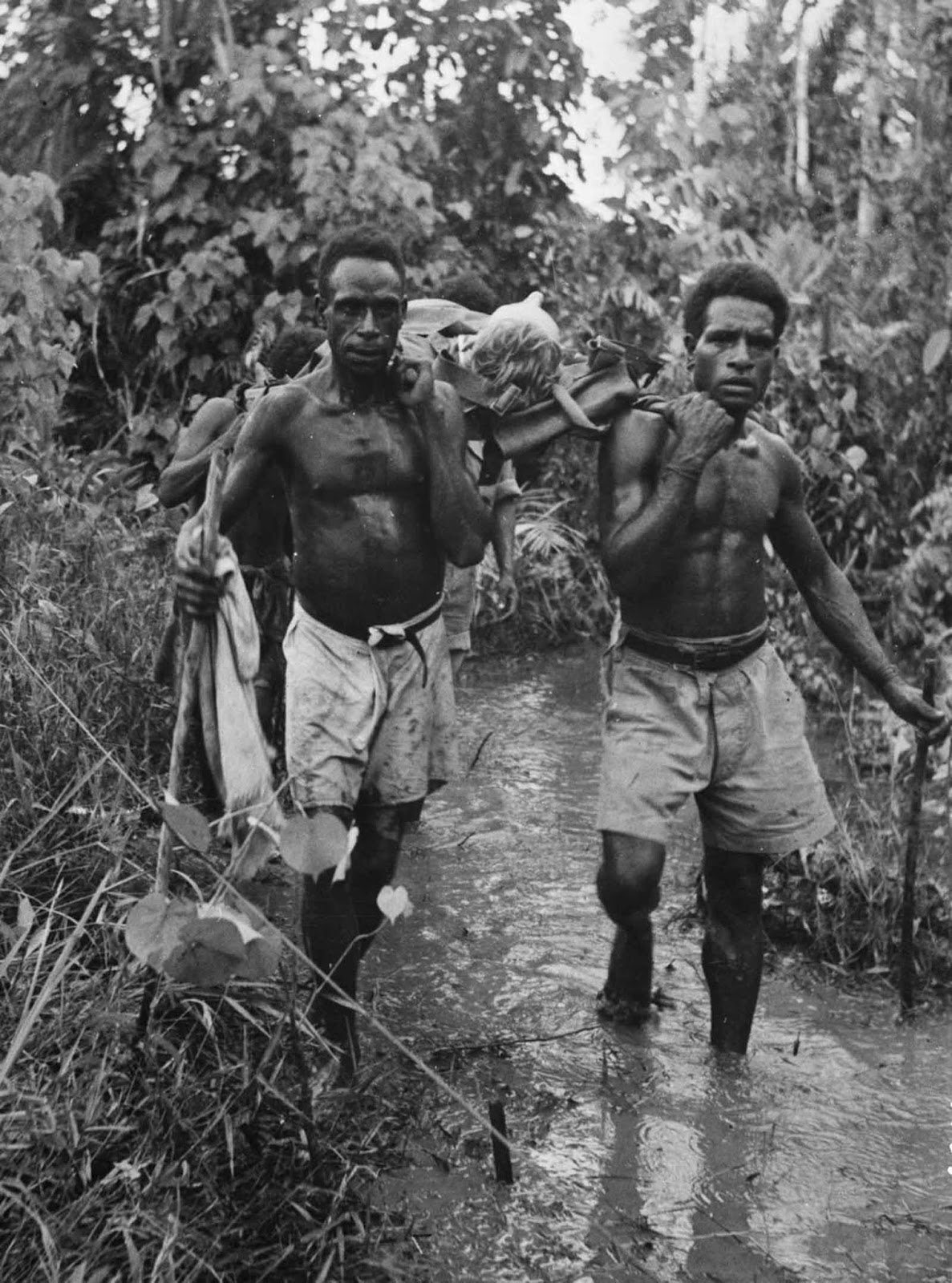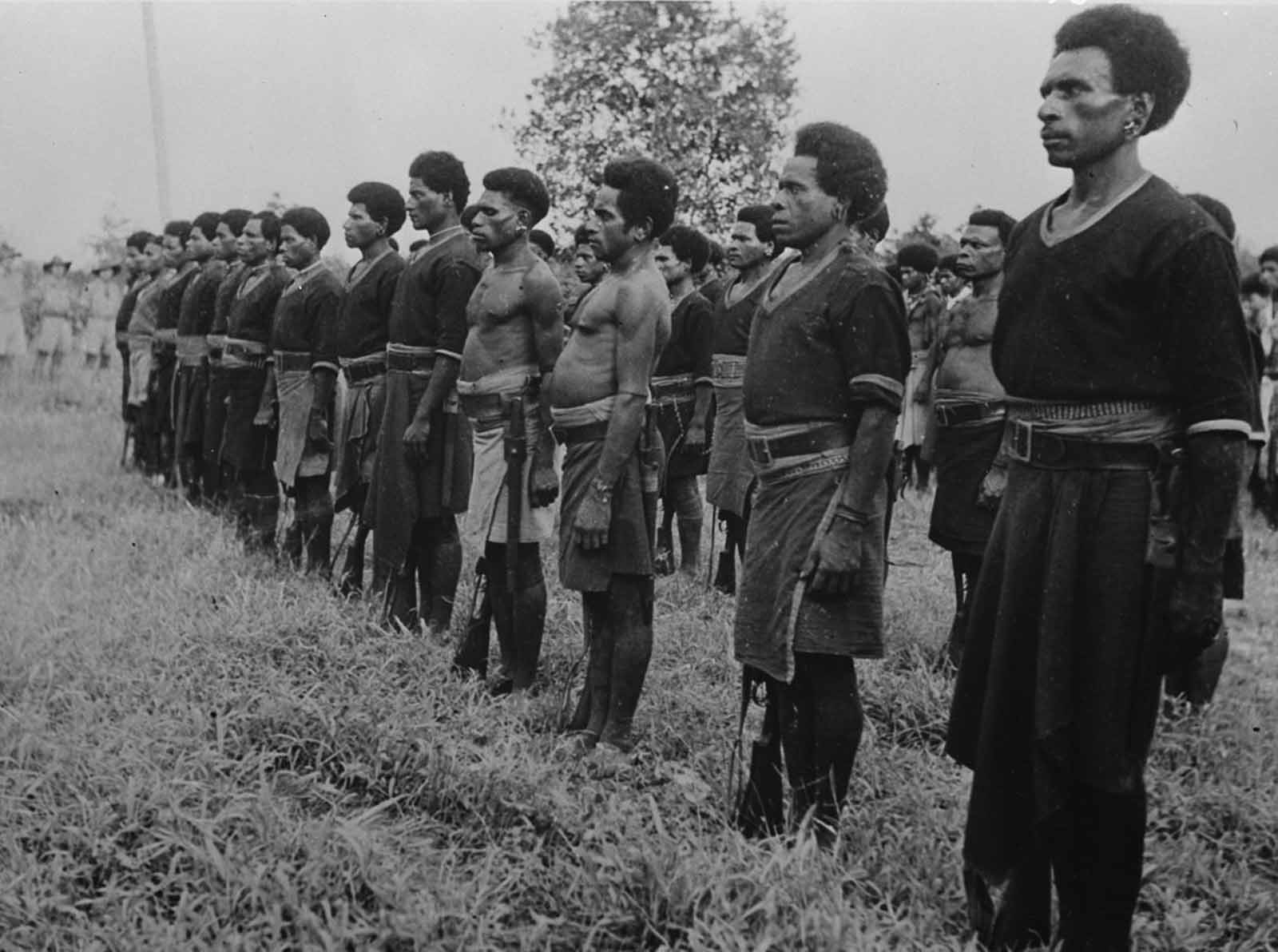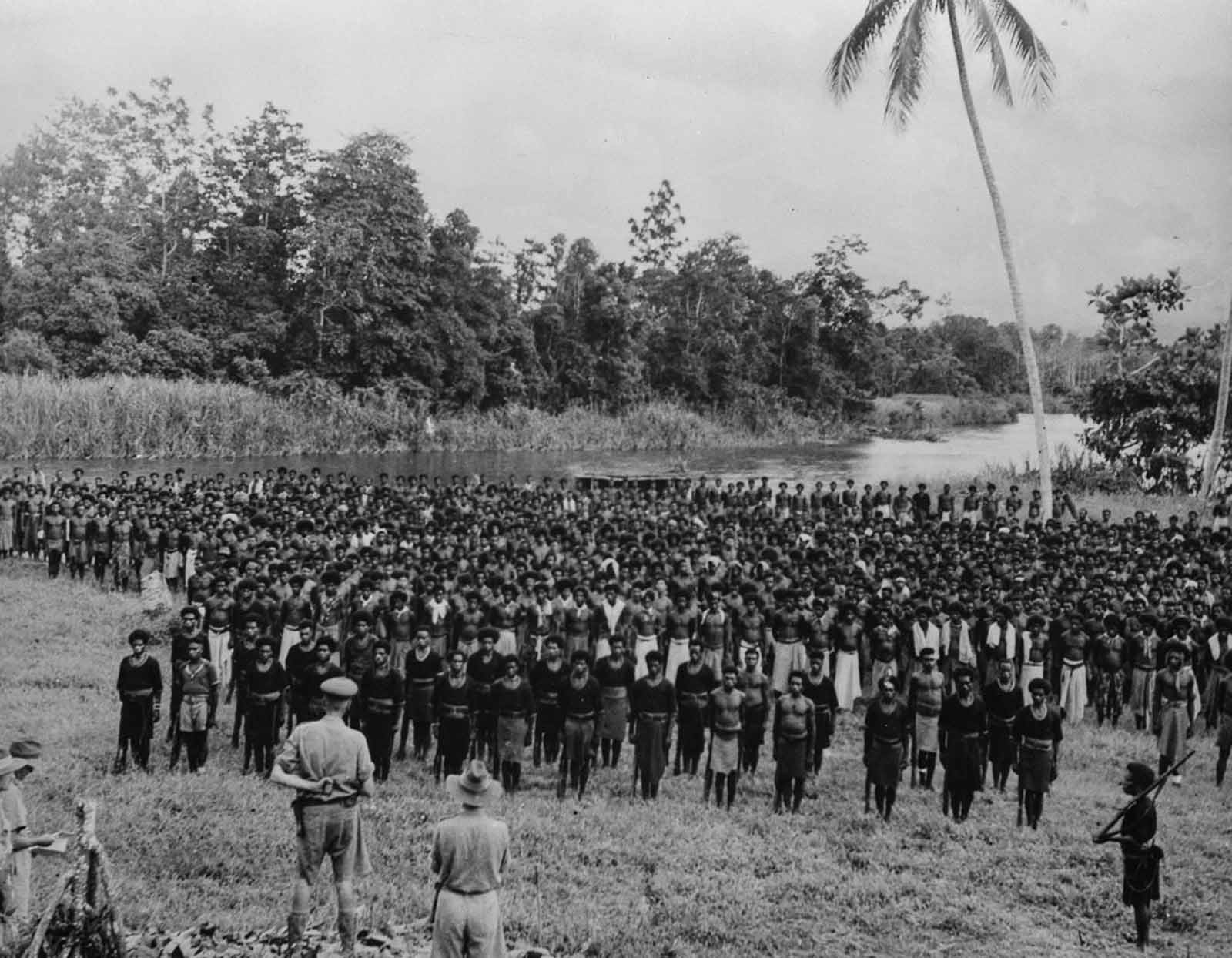 A Papua New Guinean Native “Fuzzy Wuzzy Angel”, guiding an injured Australian soldier home, Christmas Day, 1942.
A Papua New Guinean Native “Fuzzy Wuzzy Angel”, guiding an injured Australian soldier home, Christmas Day, 1942.
An Australian soldier, George “Dick” Whittington, is aided by Papuan orderly Raphael Oimbari, at the Battle of Buna-Gona. Whittington died in February 1943 from the effects of bush typhus, this little-known killer of many Allied and Japanese soldiers in the Pacific.
During the war in Papua New Guinea, the local population who were sympathetic to the Australian troops would assist where they could. Notably they would help in transporting stores and equipment over the rough terrain. Teams carried seriously wounded and sick Australian soldiers all the way back to their bases. Their compassion and care of the casualties earned them admiration and respect from the Australians, who dubbed these men their fuzzy wuzzy angels. The Fuzzy Wuzzy Angels were named for both their frizzy curly hair and helpful role.
As one Australian digger noted: They carried stretchers over seemingly impassable barriers, with the patient reasonably comfortable. The care they give to the patient is magnificent. If night finds the stretcher still on the track, they will find a level spot and build a shelter over the patient. They will make him as comfortable as possible fetch him water and feed him if food is available, regardless of their own needs. They sleep four each side of the stretcher and if the patient moves or requires any attention during the night, this is given instantly. These were the deeds of the Fuzzy Wuzzy Angels – for us!”.
In June 2008, Australian senator Guy Barnett called for his country’s Parliament to give official recognition to Papua New Guineans’ courage and contributions to the war effort: “I was stunned to learn that Australia has not officially recognized these wonderful PNG nationals who saved the lives of Australian servicemen. They carried stretchers, stores and sometimes wounded diggers directly on their shoulders over some of the toughest terrain in the world. Without them I think the Kokoda campaign would have been far more difficult than it was”. The government agreed to consider the motion. Recognition may entail a medal, a small ex gratia payment, and additional Australian aid to improve people’s education and health in villages near the Kokoda trail.
 Stretcher bearers carry wounded soldiers to a dressing station near Buna.
Stretcher bearers carry wounded soldiers to a dressing station near Buna.
 Stretcher bearers evacuate a wounded soldier through the Sanananda area.
Stretcher bearers evacuate a wounded soldier through the Sanananda area.
 Stretcher bearers carry Corporal R.D. Somerville to a dressing station after a battle at Oive.
Stretcher bearers carry Corporal R.D. Somerville to a dressing station after a battle at Oive.
 Men carry supplies over a newly built bridge.
Men carry supplies over a newly built bridge.
 Stretcher bearers evacuate a wounded Australian soldier following a battle at Kokoda.
Stretcher bearers evacuate a wounded Australian soldier following a battle at Kokoda.
 Stretcher bearers pause for a rest in a coconut grove en route to aid stations in the rear.
Stretcher bearers pause for a rest in a coconut grove en route to aid stations in the rear.
 Supply carriers paddle a boat bearing supplies.
Supply carriers paddle a boat bearing supplies.
 Carriers transport supplies through the trackless jungle.
Carriers transport supplies through the trackless jungle.
 Boys help unload fuel drums during the Allied offensive.
Boys help unload fuel drums during the Allied offensive.
 Natives and Allied troops rest during the New Guinea offensive.
Natives and Allied troops rest during the New Guinea offensive.
 A carrier receives medical attention at an Allied forward outpost.
A carrier receives medical attention at an Allied forward outpost.
 New Guinea police form an honor guard during a medal ceremony for native stretcher bearers and supply carriers.
New Guinea police form an honor guard during a medal ceremony for native stretcher bearers and supply carriers.
 Hundreds of New Guinean stretcher and supply carriers stand at attention as Australian Major General George Alan Vasey thanks them in a medal ceremony.
Hundreds of New Guinean stretcher and supply carriers stand at attention as Australian Major General George Alan Vasey thanks them in a medal ceremony.

